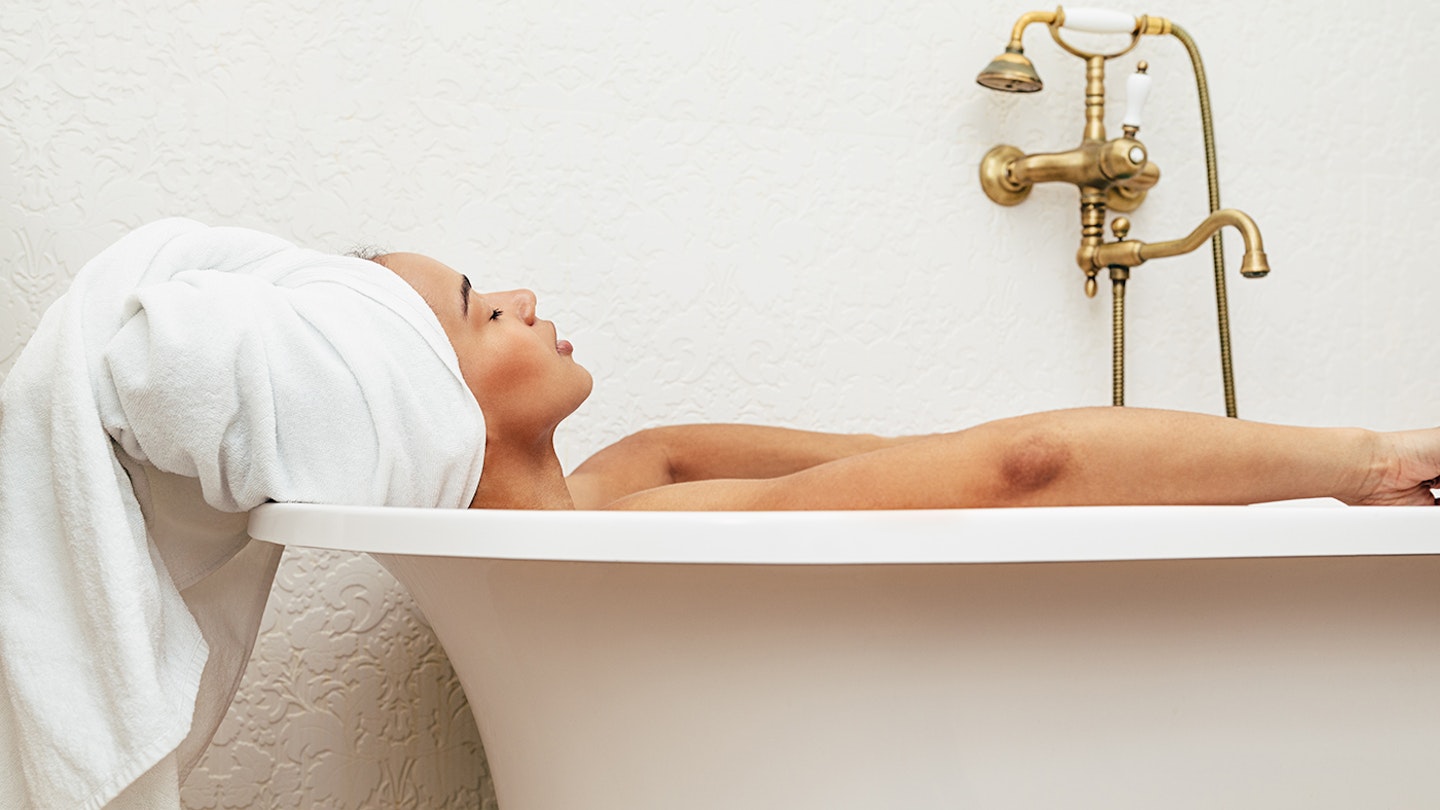Relaxing in the bath can be hugely beneficial for expectant mothers to relieve stress and ease pregnancy aches and pains such as back pain and leg cramps. While warm baths during pregnancy are perfectly safe for you and your baby, it's important to make sure the water isn't too hot.
Taking a bath during pregnancy
To be on the safe side, water temperature should be no greater than body temperature, around 37°C. This is because if you overheat, particularly in your first trimester, it can potentially cause problems to your unborn baby. You can check the water temperature by dipping in your elbow (more sensitive to heat than your fingertips or toes) before getting in - which is also good practice for when baby arrives too. If you want to be certain of the water temperature, invest in a bath thermometer.
Using a non-slip bath mat is also a good idea as you're more likely to fall when pregnant as your bump shifts your centre of gravity. Get in and out of your bath slowly – you could even get yourself a grab bar to attach to the wall. There are lots available that you can simply stick to the wall with strong suction cups, so no need to damage your bathroom tiles.
The other good news is there's no need to scrimp on your favourite bath foam or bubble bath - however if you like to use bath oils just be sure to check which essential oils are safe in pregnancy. Your body can become more sensitive during pregnancy, so if you do experience any vaginal irritation, it may be worth switching to unfragranced bath products.
If you're exercising in water, such as at an antenatal class, the temperature of the water should not be above 32°C.
Benefits of baths when pregnant
Whether you're pregnant or not, baths have been shown to have many benefits to body and mind including:
• Reduces stress
• Relieves aches and pains
• Increases blood flow
Other benefits include:
• Soothes haemorrhoids
• Eases early labour pains*
*After your waters break during labour you should avoid taking a bath – the amniotic sac provides a safe barrier to protect the unborn baby from the outside world including bacteria and infectious pathogens in the bathwater, but once this is ruptured your baby is more susceptible to infection. If you're planning a water birth the NHS tend to recommend hiring a birthing pool.
Is it safe to use a sauna or jacuzzi if I'm pregnant?
The NHS recommends avoiding the use of saunas, jacuzzis, hot tubs and steam rooms during pregnancy, because of the risks of overheating, dehydration and fainting.
You're likely to feel warmer than normal during pregnancy. This is caused by hormonal changes and an increase in blood supply to the skin.
If your temperature goes over normal body temperature (37°C) for longer than 10 minutes it counts as overheating. Some hot tubs can be as hot as 40C, so it's best to avoid them. Overheating causes changes to your blood flow, which carries a risk of reducing the amount of oxygen and nutrients that your baby is able to get.
